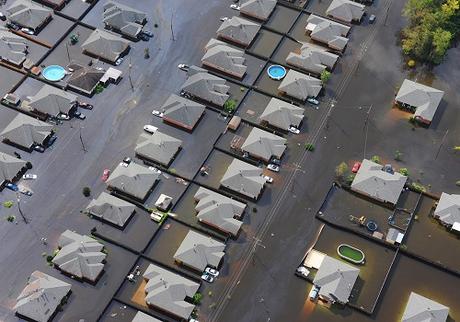Owning a home is the dream of many people, especially those who are looking to set up families. And if you are one of them, then you have to do some serious research into the properties in order to find one that is perfect for you. One big factor you must watch out for is whether the property is located in a flood zone or not. And if it is a region that is prone to floods, then you need to keep the following six points in mind.
Cause of Floods
The first thing you should do is to educate yourself as to the causes of the flood. Why is the property deemed to be in a flood zone? Unlike what many people assume, weather or a raging river is not the only reason for floods. If there is a water diversion project setup nearby, then that too is a risk since any damage in the project can potentially flood the property. A home that is located in a high flood risk area has about 25% chance of being affected by flooding at least once in 30 years. As per various estimates, almost one in six homes in the UK is said to be facing a major risk of flooding. This totals to about 5 million properties across the country. And if you are checking a property near a dam, you must be even more vigilant.

Risk of Flood
Another big factor to consider is the risk of flooding. Are you buying a property in an area that is considered to be at high, moderate, or low risk of flooding? Naturally, areas placed in high-risk zones will see that largest number of floods while those placed in low-risk zones will see the lowest number of floods. However, never overlook the fact that even if your property is located in a low risk zone, it doesn’t mean that you will never have to face a flood. In fact in the United States, about 20% of flood claims came from people who owned properties at locations which were deemed to be low-risk in terms of flooding. So, always be vigilant about the prospect of flooding and set up measures to get through the floods successfully when they do happen. However, if you are in an environmental catastrophe using service like those found on Argyll Environmental can help you know what steps to take.
Real Risk
Now, even if your property is said to be in a very risky zone, it still doesn’t mean that your entire property is at risk. Maybe only a small section of the property will be facing the risk of flood. As such, knowing about it will help you determine what steps need to be taken to protect the property. Plus, you will also be in a better position to get insurance at cheaper rates since not all regions of your property need to be protected against a possible flood.
Seller Obligation
The seller has an obligation to inform you about any flooding incidents that have happened in the past. This information is required to be filled in the property information form of the Law Society. And if there is a high frequency of flooding events, then you should ideally stay away from buying that home. Moreover, the banks themselves are less likely to lend you a mortgage on such properties. If the seller falsifies the information and does not intestinally tell you about the flooding incidents in the past, then they can be held liable for any financial loss you might suffer due to such false information.
Insurance
When you apply for home insurance to protect your property from floods, then you should expect a flurry of questions from the insurance companies. And in case the property has seen flooding situations in the past, then you should expect the premiums to go higher. But no matter how expensive they might seem, it is recommended that you do get insurance to protect your home from floods. After all, since one in six homes is said to be at risk of flooding, you really can’t risk your home get affected by the floods. It will only end up financially destroying you. Just make sure that you check multiple insurers so that you get the best quotes possible. You can also take the help of a specialist broker to find the best possible insurance coverage for your property at the cheapest rate.
